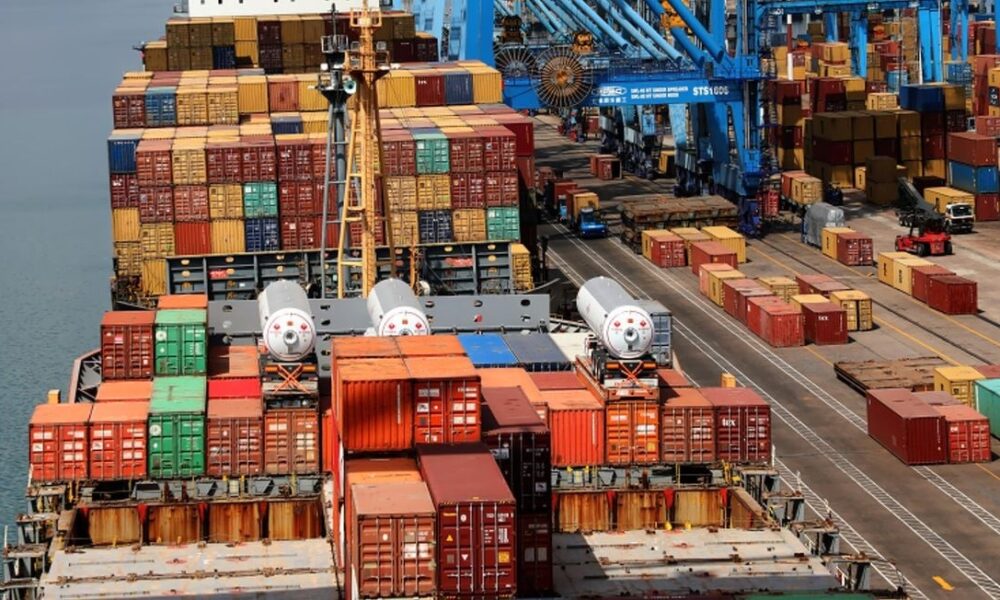By staff writer & Agencies
A High Court in Mombasa, Kenya has suspended collection of $350 Electronic Cargo Tracking Notes charges levied by the government of South Sudan.
“Conservatory order is hereby issued staying the implementation of the decision,” a court order seen by this outlet indicates.
The court has set 9th April for hearing of lawsuit filed by the Kenyan Clearance Agents challenging the fees.
The court further stated that “the motion dated 25th March 2024 be served on the respondent with three working days for hearing interpartes 9th April 2024.”
Last month, the Ministry of Finance and Planning issued an order to implement Electronic Cargo Tracking Notes (ECTN) at the border points.
The purpose of this device is to help the government of South Sudan maximize its revenue collection by remedying the challenges of underestimation, undervaluation and diversion of cargo round-tripping.
The ECTN is introduced to monitor the outflow of goods from South Sudan and the inflow of goods from other countries. It will apply to all cargo carriers of exports from South Sudan and cargo carriers of imports into South Sudan.
However, the Kenya Clearance Agency protested the introduction of ECTN.
Last week, the Kenya clearance agency filed a petition in the High Court in Mombasa challenging the $350 (Ksh46,075) charged per container of all cargo destined for South Sudan.
the clearing agents under the Kenya International Freight and Warehousing Association (Kifwa) say they are licensed by the Commissioner of Customs in Kenya to clear cargo and collect taxes and levies.
“As clearing agents, we operate under Kenyan laws and the East Africa Community Customs Management Act and the regulations made thereunder,” part of the petition states.
Kifwa wants a declaration that the levy per unit to all imports headed to South Sudan is unconstitutional.
It also seeks an order issued to quash the directive and prohibit the Mombasa Monitoring Station-National Revenue Authority of South Sudan from enforcing the directive.
According to Kifwa, there is a cargo tracker monitored by the customs department in Kenya— the Regional Electronic Cargo Tracking System—which is efficient, mandatory, and free within East Africa.
Parliamentary approval
They argue that the South Sudan ECTN is inconsequential in terms of cargo tracking except for collecting the money and directing the funds to a private account in Uganda.
“The directive to collect the revenue through ECTN is being implemented in the country at the port, inland container depots, Container Freight Stations (CFS), Malaba and Busia border points,” the petition states in part.
Kifwa says that Kenyan clearing agents are being forced to implement and collect the pre-requisite ECTN service charge.
It argues that using Kenyan agents to process and collect ECTN service charges or any other taxes within the Kenyan customs area is illegal.
Kifwa says the directive has compromised clearing agents’ fundamental rights to earn a living, is prejudicial, and contravenes the Constitution on economic empowerment of truck owners.
“The levy being imposed by the respondent is ultra vires to the law since it has no constitutional basis and has no approval of Parliament as required by law,” says Kifwa in its petition.
It says that under the directive no trucks are leaving the port, ICD, CFS, and border posts since Mombasa Monitoring Station-National Revenue Authority of South Sudan is not releasing any trucks headed to South Sudan before payment of the levy.
The association says its members are experiencing delays in the release of the goods headed to Southern Sudan from Mombasa.
The petitioner further says cargo destined for South Sudan is cleared under Kenya Revenue Authority customs systems under transit entry covered by the regional customs transit guarantee security bond.
In his affidavit, Kifwa chairperson Roy Mwanthi says that they are experiencing delays in the release of goods headed to South Sudan from Mombasa, ICDs, and CFSs since they are released after authorisation by South Sudan customs officers.
Economic empowerment
“The delays are negatively affecting all agents and other port stakeholders resulting in high demurrage and truck detention charges which shall be borne by Kenyan agents,” part of the petition states.
Kifwa says that in implementing the levy, they were not invited to participate, and they were denied fair administrative action.
They are also seeking a declaration that the directive issued by the respondent is unconstitutional and contravenes the petitioner’s right to fair administrative justice.
Kifwa also wants a declaration that the directive by the respondent is unconstitutional as it contravenes the petitioners’ right to economic empowerment as enshrined in the Constitution.




